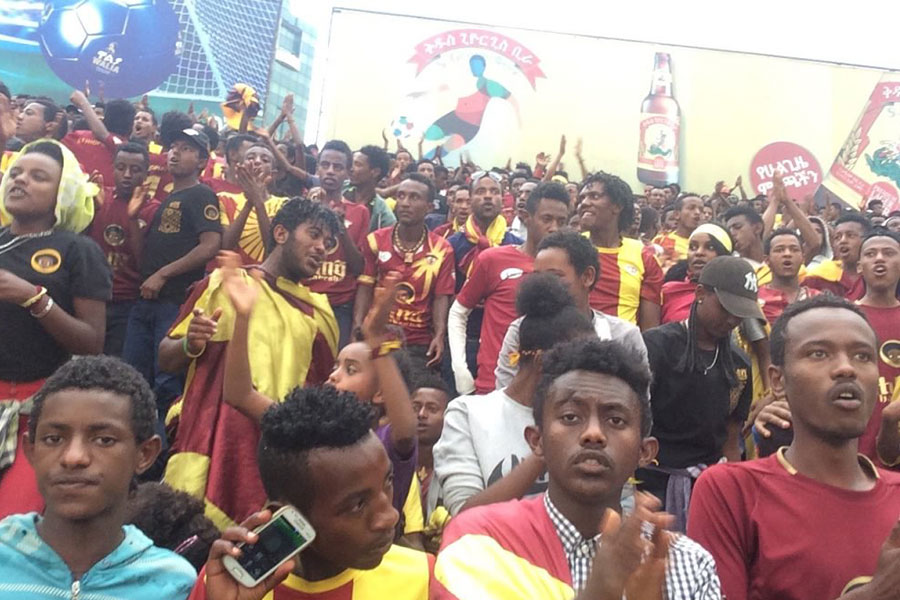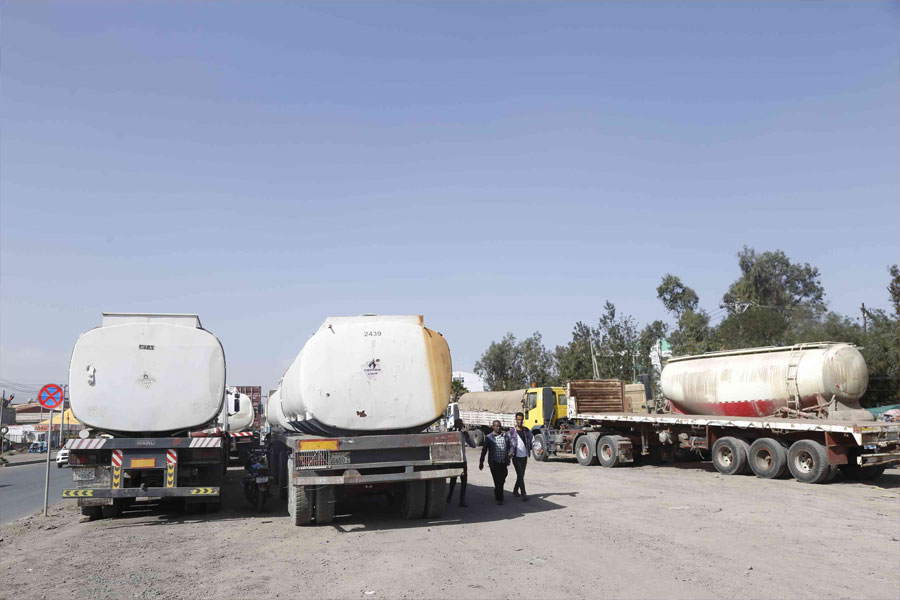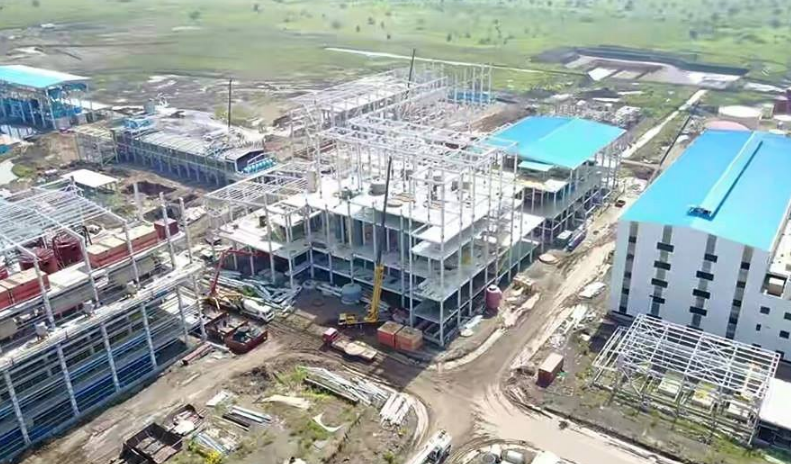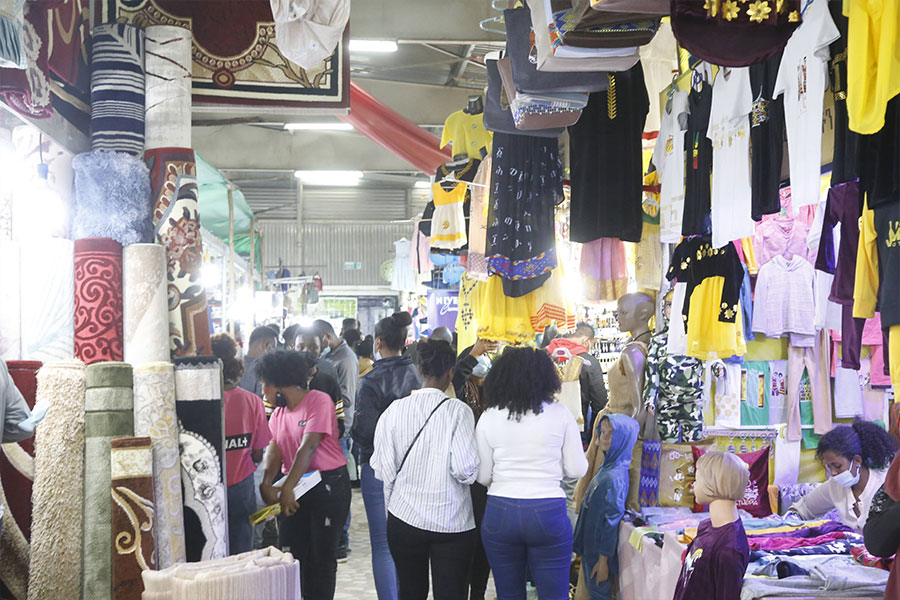
Fortune News | Aug 19,2023
PetroChina offered the lowest bidding price of 27 billion Br to freight nearly 2.2 million tonnes of petroleum products in 2019.
Three international companies, Vitol, Trafigura and PetroChina, bid on the tender, while 36 responded to the tender, which was initially floated in late September but was then cancelled and re-floated on October 28.
During the financial opening held on November 21, 2018, at the Ethiopian Petroleum Supply Enterprise, the bids to transport gas oil, regular gasoline and jet fuel through Djibouti or Eritrean ports were made in two credit schemes of 150-day and 360-day payment periods.
PetroChina, a Chinese oil and gas company established in 1999, offered to freight the petroleum products through a Djibouti port for the lowest cost of freight (CFR) at 4.78 dollars a barrel for gas oil, 5.07 dollars a barrel for regular gasoline and 5.15 dollars a barrel for jet fuel for a 150-day payment period.
For the 360-day payment period, the lowest price offered by PetroChina for cost of freight (CFR) was 6.92 dollars a barrel for gas oil, 7.22 dollars for regular gasoline, and 7.30 dollars for jet fuel through a Djibouti port.
“We evaluate financial offers by the lowest cost of the combined price of petroleum products and the cost to use the ports,” said Abayneh Awol, chairperson of the tender committee and manager of the petroleum supply & sales department at the Enterprise. “The results of the financial evaluation will be announced next week.”
Most of the participants have transported fuel to the nation before. Trafigura was the winning company for this year, while PetroChina won the bid for 2017.
After the fuel supplies arrive at depots inside the country, the Enterprise distributes the fuel to 26 oil retailers. The major distributors in Ethiopia are National Oil Company (NOC), Yetebaberut Beherawi Petroleum, Oil Libya and Total, which together operate around 800 fuel stations scattered throughout the country.
Ethiopia’s consumption of fuel products is estimated at around 12.4 million litres a day and has been increasing by an average of 10pc every year since 2013. Last fiscal year, the nation consumed about 4.3 billion litres of fuel, with gas oil, nafta, taking the lion's share.
Trafigura, a Singaporean firm, procured the 2018 delivery of gas oil with the lowest freight price offer of 3.69 dollars CFR per barrel through Djibouti and 3.97 dollars a barrel CFR for regular gasoline. The company supplied 1.4 million tonnes of petroleum for an estimated cost of 22 billion Br.
“Fluctuation of the international price of oil and variation in the exchange rate and credit period of payment are major determining factors of cost of fuel," according to Serkalem Gebre Kristos (PhD), former CEO of Dallol Oil with over a decade of experience in the market. “Outside the quantity of the fuel purchase, the rest is out of our control.”
In addition to the procurement conducted through this open bid, equal amounts will be purchased through direct government-to-government transactions from Sudan and Kuwait.
This month the government amended fuel retail prices, a year and half after the last amendment was made. Following the new adjustments, the gasoline price changed to 19.69 Br per litre from 18.77; kerosene was raised to 17.78 Br a litre from 16.35; and jet oil increased from 25.7 Br to 27.08 Br.
PUBLISHED ON
Nov 27,2018 [ VOL
19 , NO
970]

Fortune News | Aug 19,2023

Featured | Jan 05,2019

Fortune News | Oct 28,2023

Fortune News | Nov 09,2019

Radar | Apr 10,2021

Fortune News | Feb 01,2020

Fortune News | Oct 14,2023

Fortune News | Apr 04,2020

Featured | Sep 04,2021

Fortune News | Aug 06,2022

Dec 22 , 2024 . By TIZITA SHEWAFERAW
Charged with transforming colossal state-owned enterprises into modern and competitiv...

Aug 18 , 2024 . By AKSAH ITALO
Although predictable Yonas Zerihun's job in the ride-hailing service is not immune to...

Jul 28 , 2024 . By TIZITA SHEWAFERAW
Unhabitual, perhaps too many, Samuel Gebreyohannes, 38, used to occasionally enjoy a couple of beers at breakfast. However, he recently swit...

Jul 13 , 2024 . By AKSAH ITALO
Investors who rely on tractors, trucks, and field vehicles for commuting, transporting commodities, and f...

Nov 1 , 2025
The National Bank of Ethiopia (NBE) issued a statement two weeks ago that appeared to...

Oct 25 , 2025
The regulatory machinery is on overdrive. In only two years, no fewer than 35 new pro...

Oct 18 , 2025
The political establishment, notably the ruling party and its top brass, has become p...

Oct 11 , 2025
Ladislas Farago, a roving Associated Press (AP) correspondent, arrived in Ethiopia in...